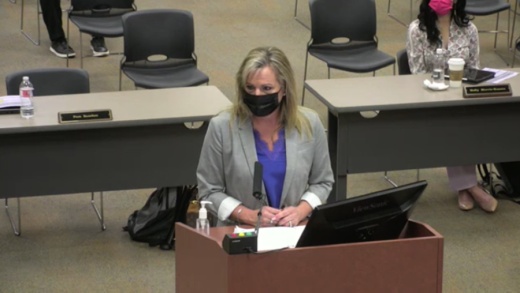A shift in Lake Travis ISD’s tax rate formula could bring in an estimated $2.9 million in additional local revenue for the 2021-22 school year.
The board of trustees met March 24 to discuss a possible voter approval tax election—also referred to as a golden penny election.
The term golden penny represents pennies within an ISD’s maintenance and operations, or M&O, tax bill, which are primarily used to fund staff salaries and benefits. These pennies can hold value for Texas school districts as they are not subject to recapture payments.
Texas’ recapture system requires ISDs with a value per student higher than $6,030 to contribute payments based on the district's taxable value, according to the Texas Education Agency. Those funds are then redistributed to less affluent districts.
Annually, LTISD, which is considered a property-wealthy district, sends money back to the state in what is referred to as “local excess revenue,” according to Pam Sanchez, the district’s chief financial officer.
However, an increase in a district’s golden pennies would allow for the retention of local revenue.
LTISD voters approved a golden penny election in November 2017, which brought the golden penny fund from four to six pennies—the maximum allowed at the time. Under House Bill 3, passed in 2019, districts may now seek a total of eight golden pennies, which will represent $0.08 of the total tax bill.
If approved by a majority of local voters, LTISD would increase the M&O portion of its tax rate by $0.02. Still, residents would not see an increase in their tax bill.
Sanchez said this would be achieved through what is referred to as a “penny swap.” LTISD would also decrease its interest and sinking, or I&S, rate which represents debt services, by $0.02.
This shift can be achieved because the district has been effectively paying off its debt from former bonds, according to Sanchez.
Additionally, LTISD is subject to an annual tax rate compression required by HB 3. Therefore, residents would still see a lower tax bill.
“[The golden pennies] would allow us to effectively manage student and district operational growth for the next five years, which we are anticipating while remaining competitive in hiring and recruiting qualified staff,” Sanchez said.
The district has also consulted with its financial advisers to ensure this decision would not impact the capacity to pay off current debt or seek future bonds. Sanchez said those advisers did not think the tax rate shift would pose any negative impacts.
A resolution regarding a potential tax rate election will come before trustees at the April board meeting. If approved, voters could see the initiative on the November ballot.





